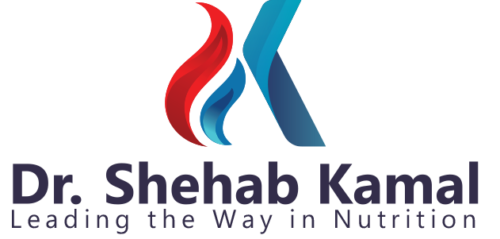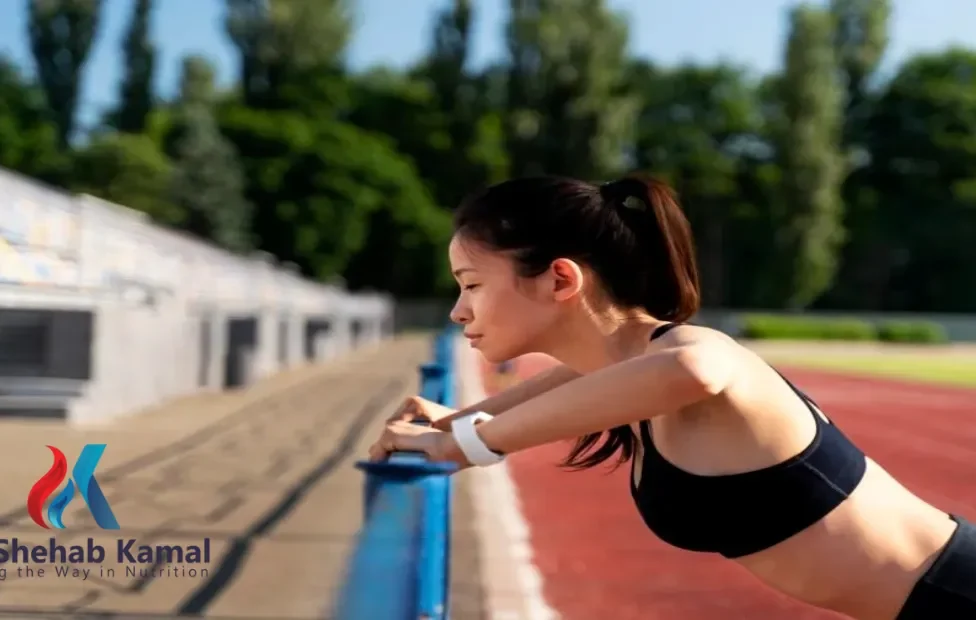What is Sports Nutrition? A Comprehensive Guide to Optimal Athletic Nutrition، Sports nutrition is the science of understanding how different foods and nutrients affect an athlete’s performance, recovery, and overall health. It goes beyond just eating a balanced diet; it involves tailoring nutrition to the specific needs of the sport, the intensity of the training, and the individual goals of the athlete.
What is Sports Nutrition?
Sports nutrition is a specialized field of nutrition that focuses on the dietary needs of athletes and physically active individuals. It aims to optimize performance, support recovery, and promote overall health through tailored nutritional strategies. This guide will explore the key components of sports nutrition, including macronutrients, micronutrients, hydration, and meal timing, as well as specific considerations for different types of sports.
المكونات الرئيسية من التغذية الرياضية
- Macronutrients: Carbohydrates, Proteins, and Fats
- Carbohydrates: Carbohydrates are the primary energy source for athletes. They are crucial for fueling high-intensity exercise, maintaining blood glucose levels, and replenishing glycogen stores in muscles. Consuming adequate carbohydrates before, during, and after exercise can help enhance performance and support recovery.
- Proteins: Proteins are vital for muscle repair, growth, and recovery. They provide the essential amino acids needed to build and maintain muscle tissue. Athletes require higher protein intake to support the increased muscle turnover associated with regular training.
- Fats: Fats are a secondary energy source, particularly during prolonged, low-intensity activities. They are also essential for hormone production, nutrient absorption, and overall cellular health. Healthy fats, such as those found in nuts, seeds, avocados, and fish, should be included in an athlete’s diet.
- Micronutrients: Vitamins and Minerals
- Vitamins: Vitamins play critical roles in energy production, immune function, and bone health. For example, vitamin D is essential for bone strength, while vitamin C supports immune function and tissue repair.
- Minerals: Minerals like calcium, iron, and magnesium are crucial for bone health, oxygen transport, and muscle function. Athletes need to ensure they are getting sufficient minerals to support their high levels of physical activity and prevent deficiencies.
- Hydration: Importance of Fluid Intake
- Proper hydration is essential for maintaining optimal performance. Dehydration can impair physical and mental performance, increase the risk of heat-related illnesses, and hinder recovery. Athletes should aim to stay hydrated before, during, and after exercise by drinking water or electrolyte-rich beverages.
- Timing and Types of Meals
- Pre-Workout Nutrition: Consuming a balanced meal rich in carbohydrates and moderate in protein 2-3 hours before exercise helps fuel performance and prevent fatigue. A small snack closer to exercise time can also provide an extra energy boost.
- Post-Workout Nutrition: After exercise, it’s important to replenish glycogen stores and repair muscle tissue by consuming a meal or snack that includes both carbohydrates and proteins within 30-60 minutes.
- Daily Meal Planning: Athletes should focus on balanced meals throughout the day, including a mix of macronutrients and micronutrients to support ongoing energy needs, muscle recovery, and overall health.
- Special Considerations for Different Sports
- Different sports have unique nutritional demands. For example, endurance athletes may need higher carbohydrate intake to sustain long-duration activities, while strength athletes might prioritize protein for muscle building and recovery. Tailoring nutrition to the specific demands of the sport can enhance performance and outcomes.

Micronutrients: Vitamins and Minerals
Micronutrients, which include vitamins and minerals, play vital roles in an athlete’s overall health, performance, and recovery. Unlike macronutrients, they are required in smaller amounts, but they are no less important for optimal athletic function.
Vitamins
Vitamins are organic compounds that are essential for a variety of bodily functions:
- Vitamin D: Crucial for bone health, vitamin D helps with the absorption of calcium and phosphorus, which are necessary for strong bones. Adequate levels of vitamin D can also enhance muscle function and reduce the risk of injury. Since it is often synthesized through sun exposure, athletes training indoors or in low-sunlight regions may need supplementation.
- Vitamin C: This vitamin is a powerful antioxidant that aids in the repair of tissue and the recovery process. It also supports the immune system, helping to protect athletes from infections and illnesses that could disrupt training.
- B Vitamins (B6, B12, Folate): These vitamins are essential for energy production, helping to convert food into usable energy. They also play roles in red blood cell formation, which is critical for oxygen transport during exercise.
- Vitamin E: Another antioxidant, vitamin E helps protect cells from oxidative damage caused by intense physical activity. It also supports immune function.
Minerals
Minerals are inorganic elements that are equally crucial for athletic performance and health:
- Calcium: Essential for bone density and strength, calcium is vital for athletes, particularly those involved in weight-bearing sports. It also plays a role in muscle contraction and nerve transmission.
- Iron: Iron is a key component of hemoglobin, the molecule in red blood cells responsible for transporting oxygen to muscles. Adequate iron levels are crucial for endurance athletes, as iron deficiency can lead to fatigue and decreased performance.
- Magnesium: This mineral is involved in over 300 biochemical reactions in the body, including energy production and muscle function. It helps prevent muscle cramps and supports recovery by aiding in muscle relaxation.
- Zinc: Zinc supports immune function and is important for protein synthesis and muscle repair. It also helps in wound healing and maintaining hormone levels that are critical for athletic performance.
- Potassium and Sodium: These electrolytes are essential for maintaining fluid balance, nerve function, and muscle contractions. They are especially important for athletes who lose significant amounts of these minerals through sweat during intense exercise.
Meeting Micronutrient Needs
Athletes should focus on a balanced diet rich in a variety of fruits, vegetables, lean proteins, and whole grains to meet their micronutrient needs. In some cases, supplementation may be necessary, particularly if an athlete has a deficiency or increased demand due to intense training. Consulting with a nutritionist or healthcare provider can help determine if supplementation is needed and ensure it is done safely.


